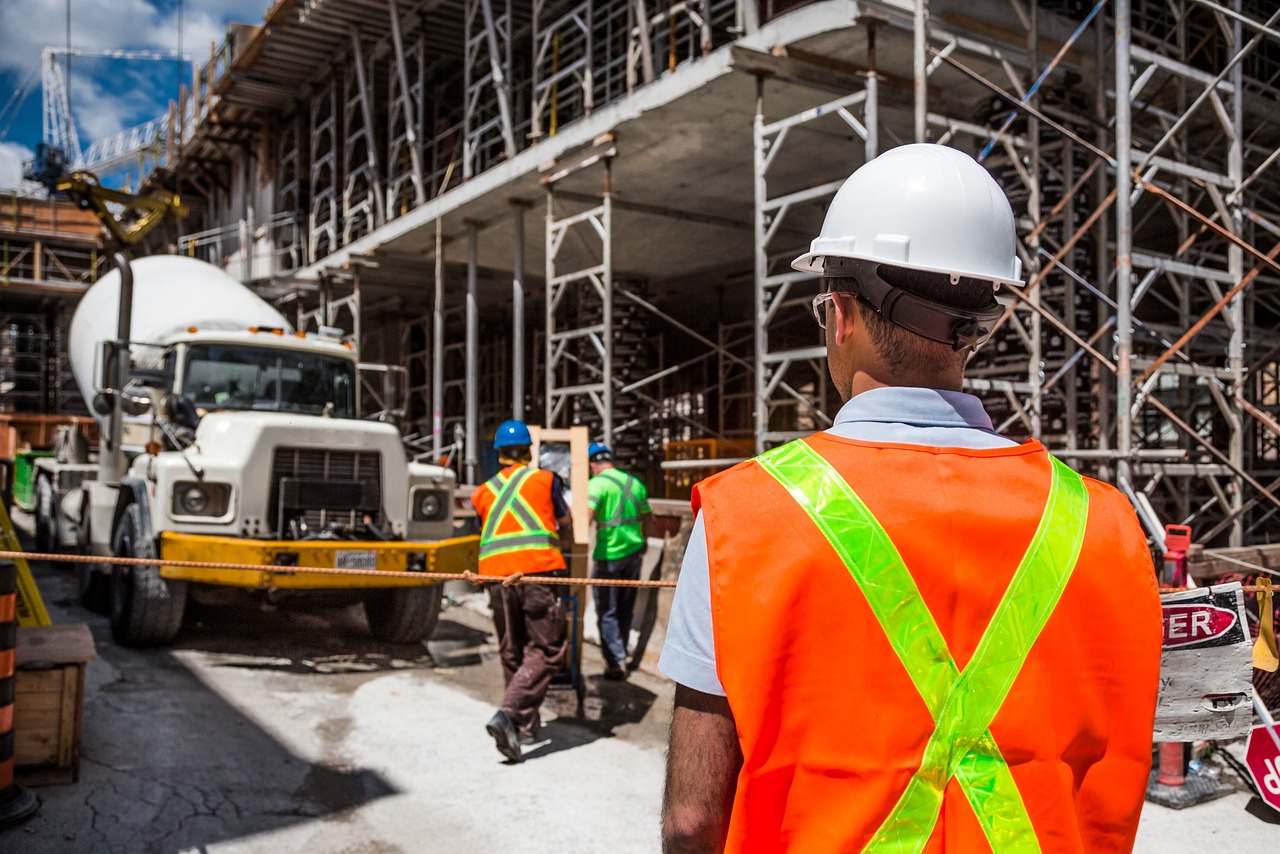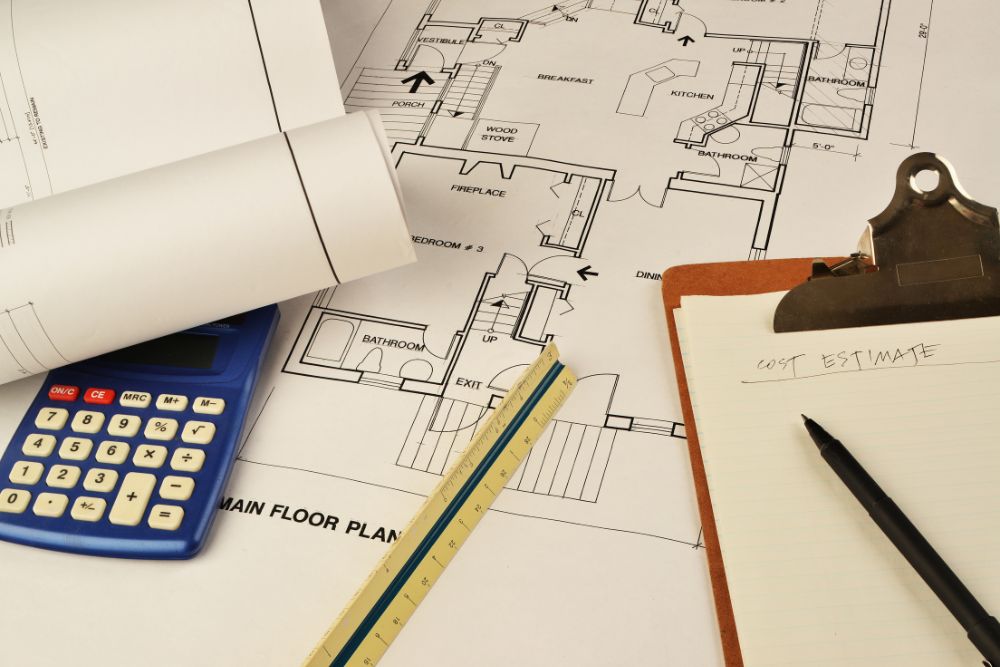Construction estimators play a critical role in every building project. They make sure costs are calculated correctly and budgets stay under control. It’s also a career that offers strong earning potential. In the United States, construction estimators earn an average annual salary of approximately $90,000, which translates to nearly $7,500 per month or around $44 per hour. In states like California, the hourly pay is even higher, often ranging from $52 to $55 per hour.
The construction industry is expanding quickly, with new projects and renovations driving the need for accurate cost planning. This growth creates a steady demand for skilled estimators who can keep projects financially on track. If you enjoy working with numbers, analyzing details, and being part of major building projects, this career could be a great fit. It also offers stability, advancement opportunities, and a clear path for long-term success.
In this guide, we will discuss how to become a construction estimator in the USA and the steps you can take to build a successful career in this field.
Who is a Construction Estimator?
A construction estimator is the person responsible for figuring out how much a building project will cost. They look at every part of a project, materials, labor, equipment, and time, and turn those details into a clear budget.
Their role is crucial because a project can run into problems if costs aren’t planned properly. Estimators provide builders and clients with accurate cost information, helping them make smart decisions and avoid unexpected expenses.
Estimators also keep their numbers up to date. They research current market prices, compare alternatives, and adjust budgets whenever changes occur in the project.
In short, a construction estimator ensures that money is used wisely and that projects stay on track, on time, and within budget.
Types of Construction Estimators
Construction estimators can specialize in different areas depending on their skills and the type of projects they handle. Here are the main types:
Type of Estimator | Works On | What They Do |
Residential Estimator | Homes, apartments | Estimate costs for materials, labor, and tools |
Commercial Estimator | Offices, schools, shopping centers | Handle bigger budgets and multiple contractors |
Civil/Infrastructure Estimator | Roads, bridges, tunnels, utilities | Estimate large materials and work with government |
Trade/Specialty Estimator | Plumbing, electrical, HVAC, flooring | Focus on one trade and give detailed cost estimates |
Key Skills Every Construction Estimator Needs
To be successful as a construction estimator, you need a mix of technical and personal skills. These help you prepare accurate estimates and manage projects smoothly.
Here are the main skills every construction estimator should have:
- Math and Analytical Skills: You need to calculate costs, measure quantities, and analyze data accurately.
- Blueprint Reading : Understanding plans and drawings is essential for estimating materials and labor.
- Attention to Detail: Small mistakes in estimates can lead to big budget problems, so precision is key.
- Communication Skills: You must explain estimates clearly to clients, contractors, and project managers.
- Time Management: Estimators often work on multiple projects, so staying organized and meeting deadlines is important.
- Computer and Software Skills: Knowledge of tools like Excel, PlanSwift, or other estimating software improves speed and accuracy.
Roles and Responsibilities of a Construction Estimator
A construction estimator plays a key role in keeping projects on budget and running smoothly. They handle everything from reviewing project plans to helping teams make informed financial decisions.
Here are the main roles and responsibilities of a construction estimator:
- Prepare Cost Estimates: Calculate the cost of materials, labor, and equipment needed for a project.
- Analyze Project Plans: Review blueprints, drawings, and specifications to determine accurate costs.
- Research Material Prices: Keep track of market prices and compare options to find cost-effective solutions.
- Update Estimates: Adjust budgets when project plans change or new information becomes available.
- Collaborate with Teams: Work closely with project managers, contractors, and clients to ensure everyone understands the budget.
- Prepare Reports: Create clear and detailed reports to guide decision-making throughout the project.
By handling these responsibilities, construction estimators help prevent overspending, delays, and financial risks, ensuring projects are completed efficiently and within budget.

Ways to Become a Construction Estimator
Becoming a construction estimator can follow several paths, depending on your education, experience, and career goals. The main ways include:
1. Complete Your Education
A high school diploma is the first step. Courses in math, engineering, and construction technology help build a strong foundation. Many aspiring estimators continue their studies with:
- Bachelor’s Degree: Common fields include Civil Engineering, Structural Engineering, or Construction Management. A degree improves job opportunities and earning potential.
- Professional Courses: Online or in-person programs, like the Professional Certificate in Construction Estimating, teach blueprint reading, estimating, bidding, construction math, and materials.
2. Gain Practical Experience
Education alone isn’t enough. Hands-on experience is essential. You can start with:
- Internships: While in college, internships offer exposure to real construction projects.
- Entry-Level Jobs: Positions like assistant estimator or project coordinator allow you to learn from experienced professionals and build a solid foundation.
3. Obtain Certifications
Certifications strengthen your skills and credibility. Leading organizations include:
- American Society of Professional Estimators (ASPE): Offers certifications that improve career opportunities.
- Association for the Advancement of Cost Engineering (AACE): Certification demonstrates advanced knowledge and experience.
- Society of Cost Estimating and Analysis (SCEA): Focuses on cost estimating and analysis expertise.
Certifications often require a combination of education, work experience, and passing exams. They can help you stand out in the competitive construction field.
4. Secure a Job
Once you have education and certification, you can apply for construction estimator roles. Starting positions allow you to gain experience, improve your skills, and build a strong professional reputation. Over time, experienced estimators can also guide newcomers, providing mentorship and industry insights.
5. Work as a Freelance Estimator (Optional)
After gaining sufficient experience and expertise, you can work independently as a freelance estimator. This offers flexibility, higher earning potential, and the chance to work on multiple projects.
Advanced Knowledge and Expertise for Estimators
To become a successful construction estimator in the USA, you need more than basic knowledge. First, understanding different construction methods and materials is essential, as it helps you prepare accurate and reliable cost estimates. Next, having good project planning skills, like scheduling and resource management, ensures your estimates match the real-world timeline of a project.
In addition, knowing local and national building codes and regulations is very important. This knowledge helps you avoid mistakes and ensures that projects meet legal requirements. Learning to use modern estimating software, such as PlanSwift, Bluebeam, or CostX, can make your work faster and more precise.
Furthermore, skilled estimators know how to handle risks and include contingency plans for delays or price changes. They also analyze costs carefully and suggest ways to save money without compromising quality. By gaining advanced knowledge and expertise in these areas, you can become a reliable construction estimator, contribute to successful projects, and grow your career in the construction industry.
Salary and Career Outlook in the USA
A career as a construction estimator in the USA offers good earning potential and steady opportunities. On average, construction estimators make around $86,000 per year, which is about $7,200 per month or $44 per hour. Entry-level positions start near $80,000, while experienced estimators can earn over $100,000, with top professionals reaching $135,000 or more. Salaries are higher in states like California, New York, and Virginia, where the cost of living is higher.
Although the overall employment for construction estimators is expected to slightly decline by 4% between 2024 and 2034, there will still be around 16,900 job openings each year due to retirements and workers moving to other jobs. Certain sectors, like civil infrastructure and large commercial projects, continue to need skilled estimators, keeping demand steady.
Overall, becoming a construction estimator can provide competitive pay, career growth, and long-term stability, especially for those with specialized skills and experience.
FAQs
How long does it take to be a construction estimator?
Becoming a construction estimator usually takes about 4 years of college education in construction, engineering, or a related field, plus 1–3 years of practical experience. Certifications and hands-on training can help you become fully qualified in 5–7 years, depending on your career path.
Is becoming a construction estimator difficult?
Yes, it can be challenging because the role requires strong math, analytical, and technical skills, along with practical knowledge of construction methods and materials. However, with proper education, internships, certifications, and consistent practice, becoming a skilled construction estimator is achievable for motivated individuals.
Is a construction estimator in demand?
Construction estimators remain in demand across residential, commercial, and infrastructure projects. While overall employment growth is projected to be modest, there are consistent opportunities due to retirements and project complexity. Skilled and certified estimators are particularly sought after for accurate budgeting and planning.
Is an estimator a stressful job?
Estimating can be stressful because it involves tight deadlines, large budgets, and complex project details. Pressure to provide accurate numbers and keep projects on track can be high, but strong organization, planning, and experience help reduce stress and improve efficiency.
How many hours a week do estimators work?
Construction estimators usually work around 40–45 hours per week, but this can increase during peak project periods or tight deadlines. Some projects may require extra hours to meet timelines, especially for larger or more complex construction assignments.
Conclusion
Becoming a construction estimator in the USA is a rewarding career that combines analytical skills, practical knowledge, and attention to detail. From understanding construction methods and materials to mastering estimating software and cost analysis, skilled estimators play a critical role in keeping projects on budget and on time. With steady demand, competitive salaries, and opportunities for growth, this career offers both stability and long-term potential.
If you’re looking for accurate and reliable cost estimates for your construction projects, trust the experts at Prime Estimation. Our team of experienced construction estimators delivers precise, timely, and professional estimates to help your projects succeed. Contact us today to ensure your next project stays on budget and runs smoothly.












